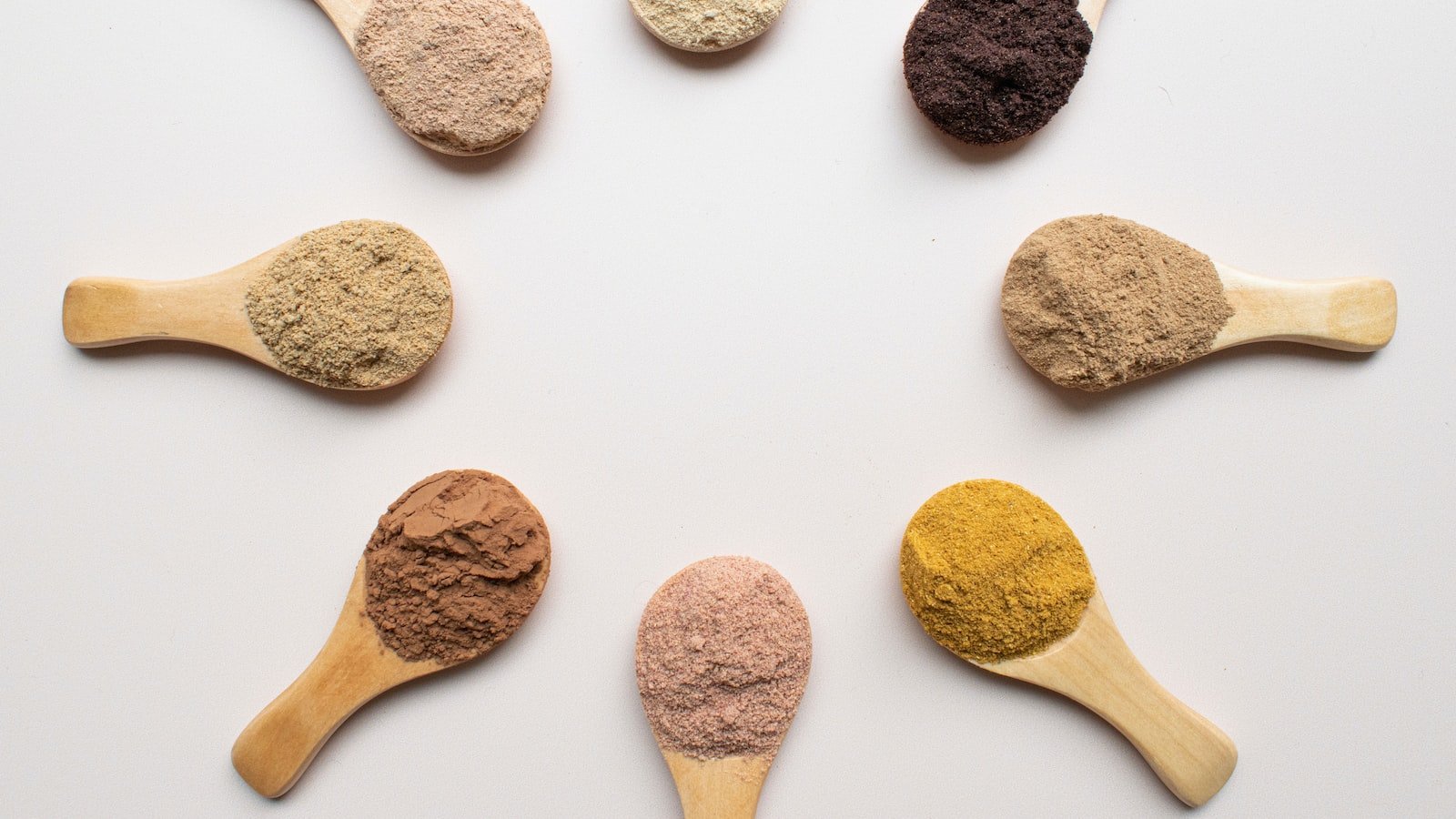Now Reading: The Importance of Nutritional Supplements in Survival Medicine
-
01
The Importance of Nutritional Supplements in Survival Medicine

The Importance of Nutritional Supplements in Survival Medicine
When it comes to surviving in challenging situations, our bodies become at once our strongest ally and our most valuable asset. Picture this: you find yourself in the midst of a post-apocalyptic world, devoid of the luxuries we have come to rely on. The air is thick with uncertainty, and the availability of sustenance becomes increasingly scarce. While traditional medicine may not be readily accessible in such circumstances, a silent yet potent hero emerges – nutritional supplements. These often overlooked powerhouses of vital nutrients hold the potential to become the ultimate lifeline in survival medicine. In the struggle to fend off illness, replenish energy, and fortify our immune systems, their significance cannot be overstated. Join us as we delve into the importance of nutritional supplements in the realm of survival medicine, unveiling their extraordinary potential and how they may hold the key to enduring the most demanding situations with resilience and strength.
Table of Contents
- The Role of Nutritional Supplements in Survival Medicine
- Understanding the Link between Nutrition and Overall Health
- Key Nutritional Supplements for Medical Emergencies
- Expert Recommendations for Building a Comprehensive Survival Medicine Kit
- Navigating Potential Risks and Side Effects of Nutritional Supplements
- Q&A
- To Wrap It Up

The Role of Nutritional Supplements in Survival Medicine
In a survival situation, proper nutrition is crucial to maintain the strength and resilience needed to overcome challenges. While a balanced diet should always be the primary source of nutrients, nutritional supplements can play a significant role in survival medicine. These supplements are not meant to replace food but rather to provide essential vitamins, minerals, and other compounds that may be lacking in a limited diet.
Here are a few key benefits of incorporating nutritional supplements into your survival medicine strategy:
- Boosting immune function: Certain supplements, such as vitamin C and zinc, are known to support the immune system. In survival scenarios, where access to medical care may be limited, a strong immune system can help prevent infections and promote faster healing.
- Enhancing energy and stamina: Nutritional supplements like B vitamins and iron can combat fatigue and promote energy production. These can be especially valuable during physically demanding tasks or extended periods of stress.
- Aiding in wound healing: Some supplements, including vitamin A, vitamin E, and collagen, have shown potential in enhancing wound healing. In survival situations, when medical intervention may be scarce, accelerating the healing process can be vital.
Survival medicine is all about being resourceful and adaptable. While supplements alone cannot guarantee survival, they can provide a valuable edge by supporting overall health and well-being. Remember to consult with a healthcare professional before incorporating any new supplements into your survival medicine plan, as individual needs may vary.

Understanding the Link between Nutrition and Overall Health
Nutrition is the cornerstone of overall health, providing the body with the essential nutrients it needs to function at its best. The link between nutrition and overall health is undeniable, as the food we consume has a direct impact on our physical and mental well-being.
By embracing a balanced and varied diet, we can fuel our bodies with the necessary vitamins, minerals, and antioxidants that fortify our immune system. Healthy eating can reduce the risk of chronic diseases such as heart disease, diabetes, and certain types of cancer.
Incorporating colorful fruits and vegetables into our daily meals not only adds vibrant flavors but also provides a rich assortment of nutrients. Leafy greens, berries, and citrus fruits are packed with vitamins and antioxidants that promote healthy skin, boost energy levels, and support cognitive function. By making these wholesome choices, we can ensure optimal nourishment while also enjoying delicious and satisfying meals.
Forming healthy eating habits goes beyond just the selection of foods. Portion control is vital, as even nutritious foods can become detrimental to health when consumed in excess. Moreover, it is important to stay hydrated by drinking enough water throughout the day. Water aids digestion, helps regulate body temperature, and assists in the transportation of nutrients in our body.
In summary, empowers us to make informed choices that benefit our well-being. A balanced diet, rich in nutrients, combined with portion control and hydration, can pave the way to a healthier and happier life. Remember, nourishing our bodies from the inside out is the key to unlocking our full potential.
Key Nutritional Supplements for Medical Emergencies
In times of medical emergencies, ensuring proper nutrition is crucial for supporting the body’s healing process and maintaining overall health. Here are some essential nutritional supplements that can play a vital role in enhancing recovery:
- Vitamin C: Renowned for its immune-boosting properties, vitamin C is instrumental in fighting infections and reducing the duration of illnesses. It also aids in collagen production, aiding wound healing and tissue repair.
- Omega-3 Fatty Acids: These healthy fats are known to have anti-inflammatory properties. Omega-3 supplements can help reduce swelling, support cardiovascular health, and promote brain function, crucial for recovering from traumatic incidents.
- Probiotics: Boosting gut health is essential during medical emergencies, as the gut plays a vital role in immune function. Probiotics promote a healthy balance of gut bacteria, enhancing digestion and nutrient absorption, thereby supporting overall health and recovery.
Always consult with a healthcare professional before incorporating any supplements into a medical emergency situation, as individual needs and circumstances can vary. These key nutritional supplements can serve as valuable aids in conjunction with proper medical care during times of crisis.
Expert Recommendations for Building a Comprehensive Survival Medicine Kit
When it comes to surviving in challenging situations, having a comprehensive medicine kit is crucial. To ensure you are well-prepared, we have gathered expert recommendations to help you build a kit that covers a wide range of medical needs.
1. Essential Medications:
- Antibiotics (broad-spectrum and topical)
- Pain relievers (such as ibuprofen and acetaminophen)
- Anti-diarrheal medications
- Antihistamines (for allergies)
2. Wound Care:
- Antiseptic solution
- Various sizes of adhesive bandages
- Gauze pads and adhesive tape
- Scissors and tweezers
3. Emergency Equipment:
- Thermometer
- Irrigation syringe
- Splinting materials
- Digital blood pressure cuff
Remember to check expiration dates regularly and replace items as necessary. Additionally, it is essential to educate yourself on their proper usage as well as understanding any potential allergies or contraindications. By following these recommendations, you can fortify your survival medicine kit and increase your chances of effectively handling medical emergencies in challenging situations.
Navigating Potential Risks and Side Effects of Nutritional Supplements
Nutritional supplements have gained immense popularity in recent years as people seek to improve their overall health and well-being. However, it is important to be aware of the potential risks and side effects that can accompany the use of these supplements. While they can offer significant benefits, it is crucial to approach them with caution and inform yourself about any possible downsides.
1. Consult with a healthcare professional: Before incorporating any new nutritional supplement into your routine, it’s essential to consult with a qualified healthcare professional such as a doctor or a nutritionist. They can help you determine whether the supplement is suitable for you based on your specific needs, existing health conditions, and the medications you may be taking. It’s vital not to self-diagnose or self-prescribe supplements as they may interact negatively with certain medications or exacerbate pre-existing conditions.
2. Research the supplement thoroughly: Take the time to research the nutritional supplement you are considering. Look for scientific studies, reputable sources, and customer reviews that provide information about its effectiveness, potential risks, and side effects. It is wise to be cautious of supplements that make unrealistic or exaggerated claims and be aware that the industry is not heavily regulated, so it is crucial to rely on evidence-based information.
3. Start with a low dosage and monitor your body’s response: When incorporating a new nutritional supplement into your routine, it’s advisable to start with a low dosage. This allows you to assess how your body reacts and determine whether any unexpected side effects occur. If you experience any adverse reactions, it’s important to discontinue use and consult with a healthcare professional.
4. Be mindful of potential allergic reactions: Nutritional supplements may contain ingredients that some individuals are allergic to. Always read the labels carefully and be aware of any known allergies you may have. If you have a history of allergies or are unsure, consult with a healthcare professional to ensure the supplement is safe for consumption.
By following these precautions and staying informed, you can navigate the potential risks and side effects of nutritional supplements more effectively. Remember, each person’s body is unique, so what works for one individual may not work for another. Prioritize your health and make well-informed decisions when incorporating supplements into your lifestyle.
Q&A
1. How do nutritional supplements play a crucial role in survival medicine?
Nutritional supplements provide an additional boost to the body’s immune system, ensuring individuals have the necessary vitamins and minerals to fight off potential infections, diseases, and deficiencies during challenging situations.
2. Can nutritional supplements act as a substitute for fresh food in survival situations?
While nutritional supplements can help bridge the nutritional gap during emergencies, they should not be seen as a long-term replacement for fresh and balanced meals. They are meant to supplement and enhance a survival diet, not replace it completely.
3. Which specific supplements are recommended for survival medicine?
Key supplements for survival medicine include multivitamins, vitamin C for immune support, omega-3 fatty acids for inflammation reduction, and calcium for optimal bone health. However, it’s crucial to consult a healthcare professional for personalized advice depending on individual needs and circumstances.
4. Can nutritional supplements help prevent certain diseases during survival situations?
While nutritional supplements can support the body’s immune system and overall health, they cannot guarantee the prevention of diseases. Proper hygiene practices, stress reduction, and a well-balanced diet are equally important factors in preventing the onset of diseases.
5. Are there any potential risks or side effects associated with consuming too many nutritional supplements?
Consuming excessive amounts of certain supplements can lead to adverse effects, such as vitamin toxicity or mineral imbalances. It’s crucial to follow recommended dosages and consult a healthcare professional to avoid any potential risks.
6. Can pregnant women or individuals with medical conditions safely take nutritional supplements in survival situations?
Pregnant women and individuals with medical conditions should consult their healthcare providers before taking any nutritional supplements, especially in survival situations where medical resources might be limited. They will assess potential risks and provide guidance based on the individual’s specific needs and conditions.
7. Should children be given nutritional supplements during survival scenarios?
Children’s nutritional needs can differ from adults, and it’s essential to consult a pediatrician or healthcare professional to determine appropriate supplementation for children in survival situations. Dosages and types of supplements may vary based on their age and specific requirements.
8. Are there natural alternatives to nutritional supplements in survival medicine?
While nutritional supplements are convenient in survival medicine, natural food sources often provide a more well-rounded option. Focusing on a diverse diet containing fresh fruits, vegetables, and lean proteins can help ensure a broader range of essential vitamins and minerals for optimal health.
9. How can individuals store and preserve nutritional supplements in survival situations?
To maintain the potency and effectiveness of nutritional supplements, it’s vital to store them in a cool, dry place away from direct sunlight. Additionally, following the manufacturer’s instructions for shelf life and expiration dates is crucial to ensure their efficacy during emergencies.
10. Can nutritional supplements act as a form of currency in survival scenarios?
While in desperate situations, nutritional supplements may have some bartering value, it’s not ideal to rely on them as a primary form of currency. Food, water, and other essential supplies tend to hold higher value in survival situations.
To Wrap It Up
In a world where the future feels uncertain, the significance of survival medicine becomes apparent. We embark on a journey through the importance of nutritional supplements, shedding light on their crucial role in the realm of healthcare during harrowing times. As we bid farewell to this exploration, it’s crucial to recognize that when facing adversity, a well-rounded approach becomes the key to resilience.
Survival medicine beckons us to delve into the realms of preparedness, fortitude, and adaptability. The inherent fragility of mankind underlines the necessity of safeguarding ourselves in times of crisis. It is during such circumstances that nutritional supplements emerge as the unsung heroes, silently replenishing our bodies and fueling our spirits.
Our exploration into the realm of survival medicine, amidst its arduous landscapes, has revealed the profound connection between physical wellbeing and mental resilience. While we have emphasized the importance of nutritional supplements, we aim not to overshadow the vitality of a holistic approach to healthcare. Healthy nutrition, rigorous training, and restorative sleep establish the foundation upon which survival medicine thrives.
Nutritional supplements, though a mere fragment of the puzzle, fill crucial gaps that nature and circumstances may create. When survival becomes paramount, our bodies need more than just sustenance; they require a nurturing synergy between our instincts and scientific advancements. The ability to harness the power of vitamins, minerals, and other essential supplements becomes our secret weapon, amplifying our bodies’ inherent strength.
But let us not fall into the trap of viewing nutritional supplements as a panacea. Survival medicine teaches us the importance of balance, reminding us that moderation can safeguard against unforeseen consequences. These supplements, while mighty, are but a single thread woven into the grand tapestry of our health. They augment, they support, they replenish, but they do not replace.
So, as we conclude this illuminating expedition through the realm of survival medicine, let us carry with us the profound understanding that nutritional supplements, when embraced with wisdom, can become a vital lifeline. As we traverse the ever-evolving landscape of healthcare, we must remember that our survival lies not solely in the strength of our bodies, but in the harmony we forge between nature’s gifts and the innovative wonders of modern medicine.
May this knowledge guide us through the darkest times, igniting a resilient spirit within all who dare to survive.
As an affiliate, my content may feature links to products I personally use and recommend. By taking action, like subscribing or making a purchase, you’ll be supporting my work and fueling my taco cravings at the same time. Win-win, right?
Want to read more? Check out our Affiliate Disclosure page.





